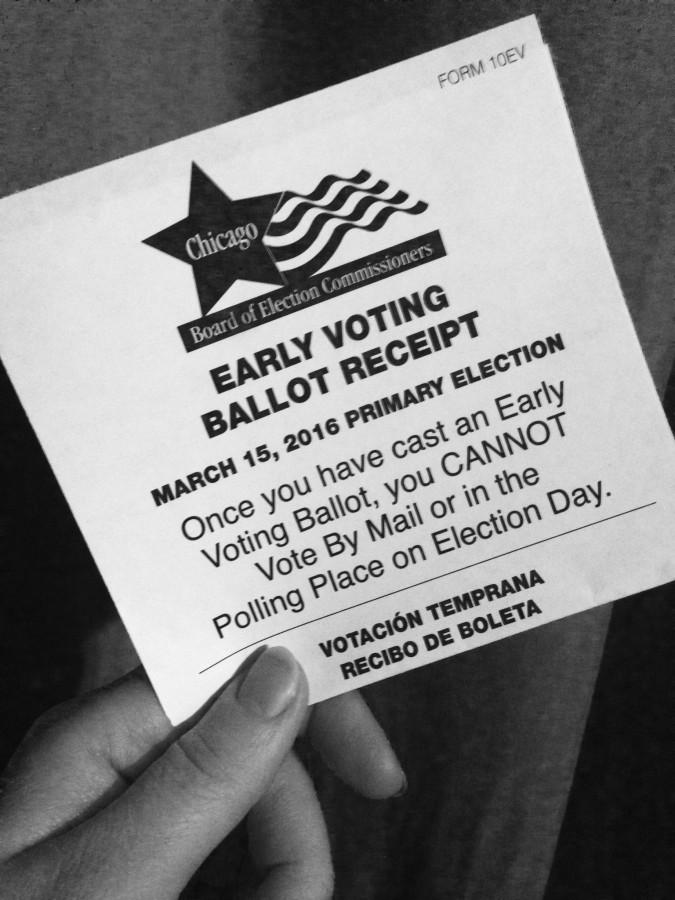Does Voting Really Matter?
April 5, 2016
There was a moment during history when a person like me would not be allowed to exercise my right to vote. Specifically for two reasons: because I’m a woman and a minority.
This is a topic very close to my heart because I like to think for myself. I am adamant that in a democracy where my political leaders are chosen by the votes of the people, my voice will be heard. I will exercise my inalienable right to vote.
Voting is important because the scars of this country’s past are too evident to take my rights for granted.
When I talk about the scars of America, I’m talking about movements that led to such events like the ratification of the 19th amendment in 1920, the Civil Rights Act of 1964, and the Voting Rights Act of 1965.
Growing up as a Hispanic female has always been a tug of war for me. I’ve always been caught in between being a proud Puerto Rican and an “Americanized” one. I was born here in Chicago and raised in the city, a Midwesterner through and through.
I’ve visited Puerto Rico twice in my life and although it was beautiful (I could live in 70 degree weather everyday), I didn’t quite fit in. Locals told me I wasn’t “Puerto Rican” enough and to this day I still don’t know what that means.
What I do know is that I am a proud American to the depths of my very core. While I wasn’t alive during the women’s suffrage movement, I’ve learned and eaten up history lessons like gummy bears.
The ratification of the 19th amendment of the United States Constitution gave the right to American women to vote. For the first time women had the same legal rights and responsibility as men did when it came to the polls.
It took almost 100 years of fighting–known as the campaign for women’s suffrage–during the 19th and 20th centuries, for women to obtain this right. So this is not one that I take lightly. The fact that I would have been denied the ability to vote (had I been alive prior to 1920), simply because I was a woman angers me.
And yes, the 19th amendment was approved in 1920 but this did not take into account women of different races, which is all the more reason voting is so important.
The Civil Rights Act of 1964 ended segregation and banned discrimination on the basis of race, color, religion, sex or national origin. After the Civil War, Southern states instilled Jim Crow laws, segregating people based solely on the color of their skin. President John F. Kennedy said that the United States “would not be fully free until all of its citizens are free.”
He first proposed the Civil Rights Act in 1963, but it was not signed into effect until 1964 by President Lyndon B. Johnson. This was one of many landmark decisions for the United States as a nation.
The Civil Rights Act paved the way for the Voting Rights Act in 1965, also signed into effect by President Johnson. This overturned any and all barriers that kept male African-American citizens from voting at the state and local levels. African-American men were able to exercise their rights to vote under the 15th amendment which states, “The right of citizens of the United States to vote shall not be denied or abridged by the United States or by any state on account of race, color, or previous condition of servitude.”
While our great nation has come a long way, there is still so much work to be done. Equality between men and women of all colors and creeds has to be one of the top priorities if the United States is to mend what’s broken.
My right to vote is important because I want to show that the people who suffered oppression before me did not do it in vain. I remember that every time I go to the polls. I didn’t suffer because others suffered, and for them my voice will be heard.
I choose to vote not because I’m a woman, or because I’m a minority, but because it is my right and no one will take that away from me.









